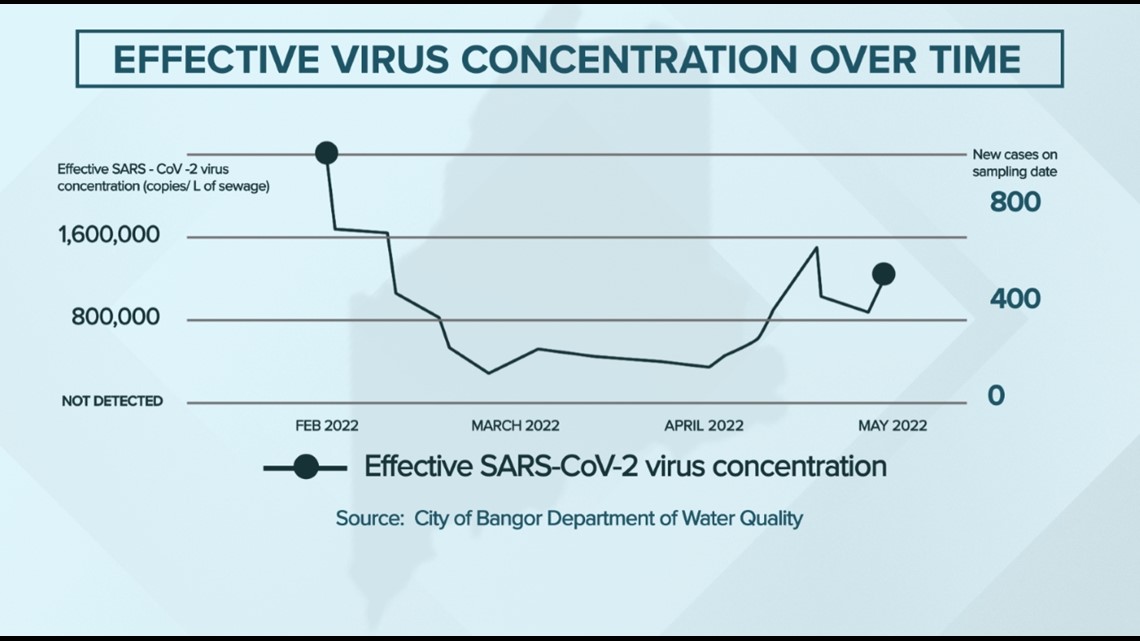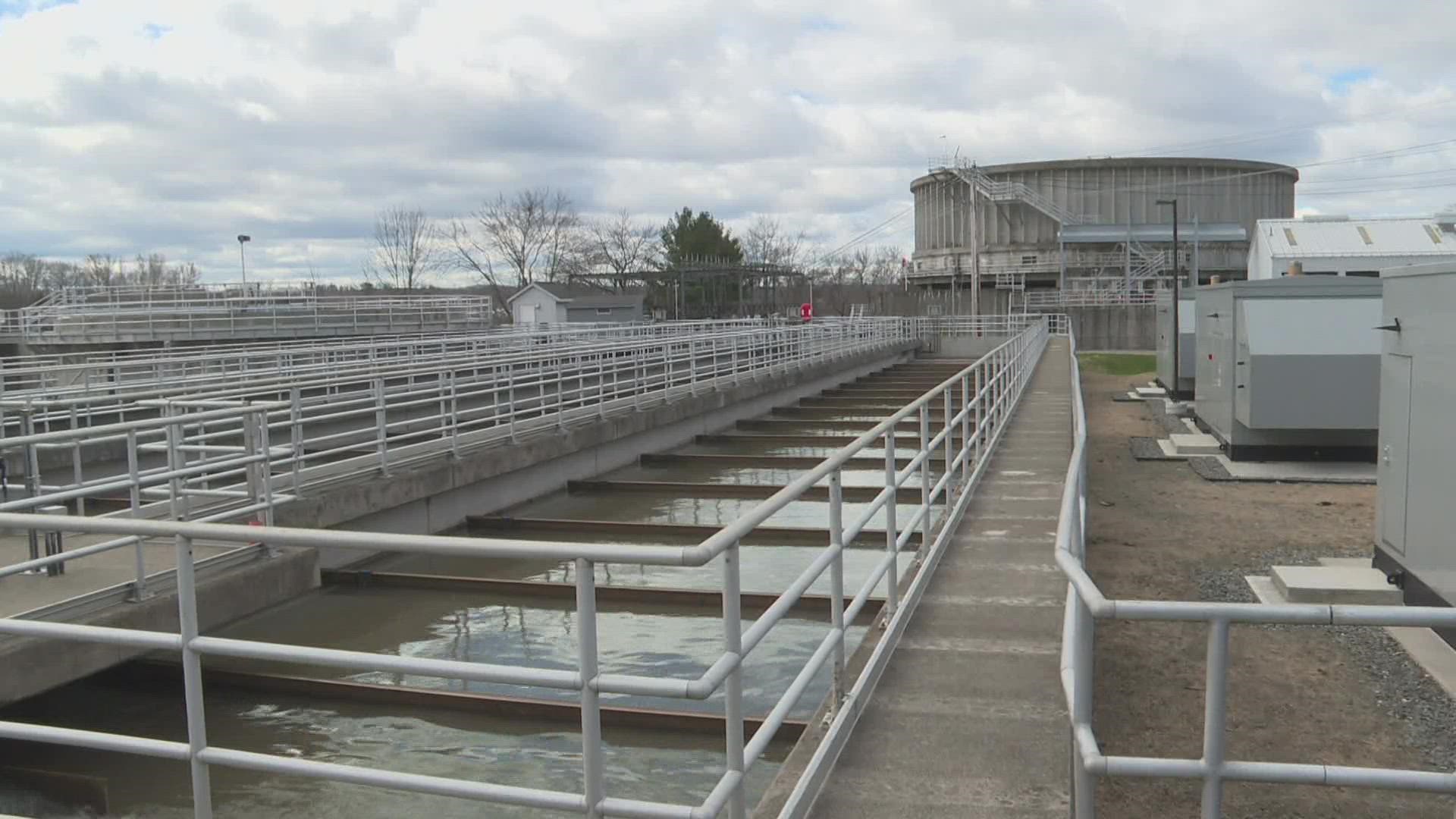PORTLAND, Maine — Cases of coronavirus may be on the rise in Bangor, according to the water flushed down the toilet.
City officials are closely monitoring trace particles of coronavirus from the region's wastewater before it enters the Bangor Wastewater Treatment plant and is eventually filtered out into the Penobscot River.
Amanda Smith, director of water quality management, said the water treatment facility works closely with the Maine Center for Disease Control to collect samples twice daily.
"[Coronavirus cases are] not as high was it was when we started sampling in February, but we are seeing an uptick, which was anticipated," Smith said.
The data from wastewater in Bangor show a slight uptick in COVID mass over the past four weeks but still not as high as the peak omicron wave from this past winter.
Factors such as weather and water flow dictate the saturation of sample taken by the facility, so Smith said looking at data over time is the only way to measure where COVID levels are going in wastewater.


"It is looked at as a trend, and we are trending upward. We actually had a very high hit on a COVID sample last week," Smith said.
Dr. Robert Wheeler with University of Maine, who studies the campus wastewater for COVID, said Bangor's data are predicting an increase in cases.
"I would say that it certainly indicates that we’re going to have more virus here in the Bangor area. We’re going to probably see more cases. We may see more strain on the hospital system in the coming weeks," Wheeler said.
He added it's not wise to rely on wastewater data alone, and his assessment comes from the fact that Bangor's COVID case data are increasing as well.
Officials with Northern Light Health concur cases have increased, as predicted by the local wastewater.
"We believe that can predict what’s going to happen to us clinically over the next two to four weeks. Most of the reports are showing a trend in an upward fashion," Dr. James Jarvis, director of clinical education, said.
Jarvis added that wastewater sampling is one of the better ways to sample a community's exposure to COVID-19, given the prevalence of at-home COVID tests, which sometimes lead to unreported results to the CDC.
"Wastewater just adds to that dataset by allowing us to really know what's being shed out in our community," Jarvis said.
The Bangor Wastewater Treatment Plant will continue to monitor the water for COVID until June.

